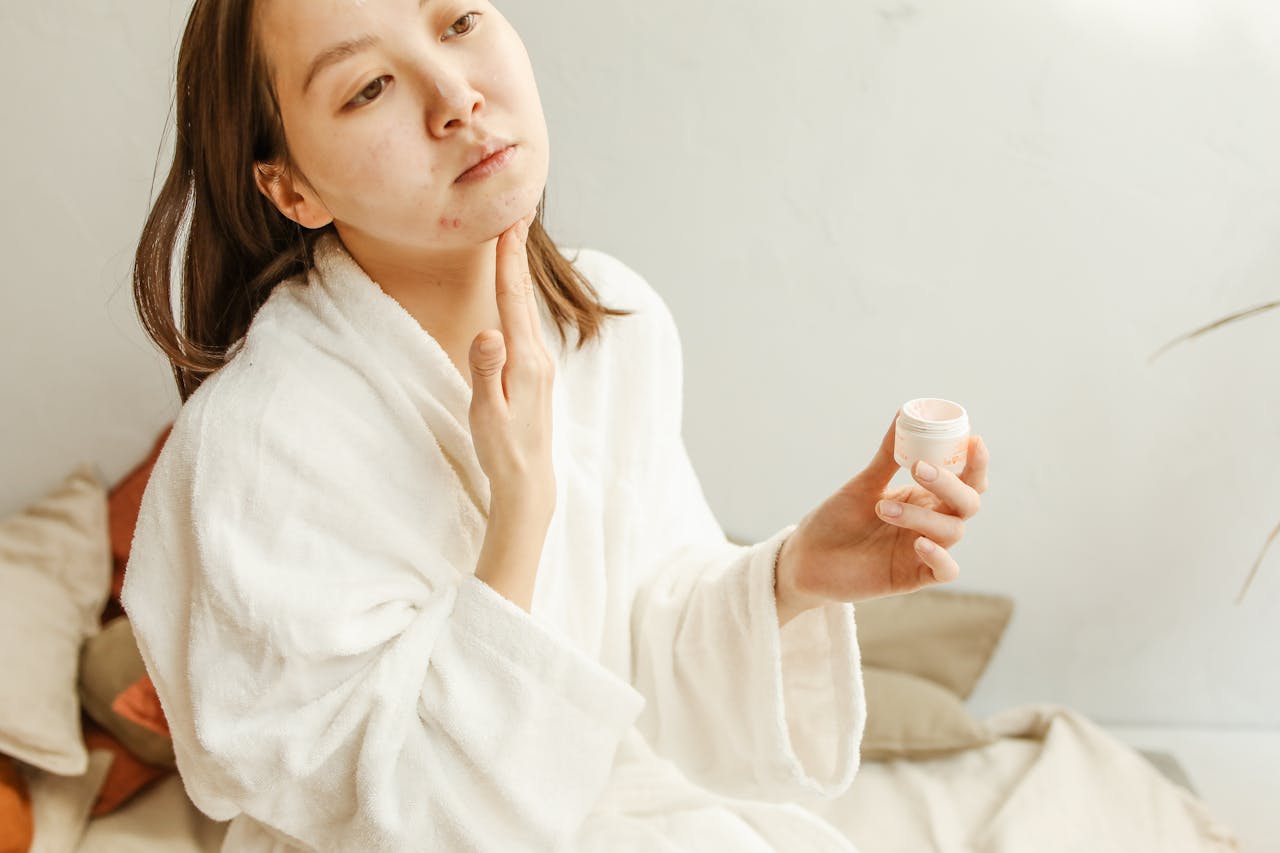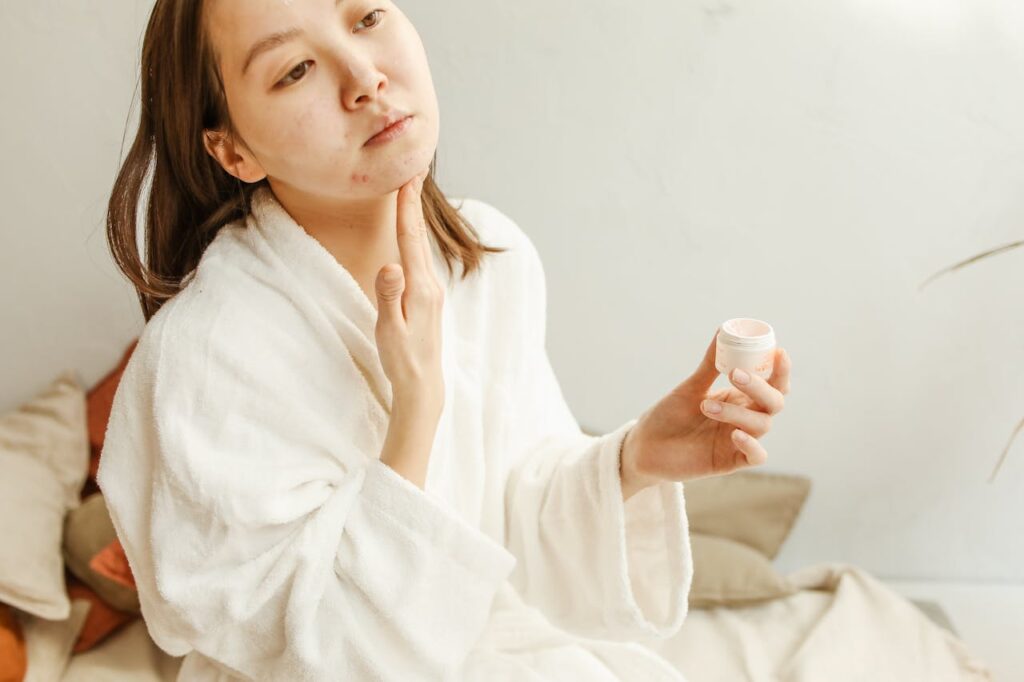Polycystic Ovary Syndrome (PCOS) is a common hormonal condition that affects around 1 in 10 women in the UK. While it’s often associated with irregular periods, fertility challenges and weight fluctuations, PCOS can also have a significant impact on your skin. From persistent breakouts and excess oil to pigmentation and unwanted facial hair, these symptoms are not just cosmetic — they can affect confidence and wellbeing. Understanding the link between hormones and skin health is a powerful step toward regaining control. Fortunately, with the right skincare approach and product choices, many of these concerns can be managed effectively. In this article, we explore five key ways PCOS can affect your skin and recommend targeted products that can help restore clarity, balance and radiance. Whether you’re newly diagnosed or have been navigating PCOS for years, this guide is designed to support you with science-backed solutions and skin-loving tips.
Hormonal Acne and Breakouts
PCOS is often accompanied by elevated levels of androgens (male hormones), which can overstimulate oil glands and lead to blocked pores. This hormonal imbalance causes deep, cystic acne, particularly along the jawline, chin and cheeks. Unlike typical teenage breakouts, PCOS-related acne can be more persistent and inflamed. A consistent skincare routine that includes gentle exfoliants, oil-controlling ingredients and non-comedogenic formulas is key. Look for products with salicylic acid, niacinamide or azelaic acid to reduce inflammation and unclog pores. Patience is essential, as hormonal acne may take longer to respond to topical treatments than other types.
We recommend: Murad Outsmart Blemish Clarifying Treatment
Excess Oil and Shine
Increased sebum production is a common skin concern in those with PCOS. The excess oil not only contributes to breakouts but can also leave the skin feeling greasy and uncomfortable throughout the day. Balancing oil production without stripping the skin is crucial. Opt for lightweight gel cleansers, mattifying moisturisers and clay-based masks to absorb excess oil while maintaining hydration. Ingredients like zinc PCA and green tea extract can help regulate sebum and calm the skin. Avoid harsh, drying products, which can trigger the skin to produce even more oil as a protective response.
We recommend: CeraVe Oil Control Moisturising Gel-Cream
Hyperpigmentation and Dark Marks
Post-inflammatory hyperpigmentation (PIH) is another frustrating side effect of PCOS, particularly for those with darker skin tones. After a breakout heals, it can leave behind a dark spot that lingers for weeks or even months. Hormonal imbalances can also make the skin more prone to melasma and uneven tone. Brightening ingredients such as vitamin C, tranexamic acid and licorice root extract can help fade dark spots and even the complexion over time. Always wear SPF daily, as sun exposure can worsen pigmentation. Gentle exfoliation and consistency are key to achieving visible improvement.
We recommend: Dermalogica PowerBright Dark Spot Serum
Sensitivity and Inflammation
Fluctuating hormones can compromise the skin’s natural barrier, leading to increased sensitivity, redness and inflammation. Many people with PCOS find that their skin reacts more strongly to certain products, temperatures or stress. Supporting the skin barrier with calming, hydrating products is essential. Look for ceramides, oat extract and centella asiatica in your skincare to help soothe irritation. Avoid over-exfoliation and introduce new products slowly. A gentle, minimalist approach often works best for skin that is easily overwhelmed or prone to flare-ups.
We recommend: Elemis Herbal Lavender Repair Mask
Unwanted Facial Hair (Hirsutism)
One of the most emotionally difficult symptoms of PCOS is hirsutism — excess hair growth on the face and body caused by elevated androgens. This can lead to issues like ingrown hairs, irritation from shaving or waxing and uneven skin texture. While hair removal is often a personal choice, proper aftercare is essential to minimise skin trauma. Use calming, antibacterial products post-removal, such as aloe vera gel or tea tree oil. Exfoliate gently to prevent ingrowns, and consider products with azelaic acid or retinoids, which may help reduce inflammation and improve skin texture over time.
We recommend: Jan Marini Bioglycolic Bioclear Lotion



 Photo by Polina Tankilevitch
Photo by Polina Tankilevitch